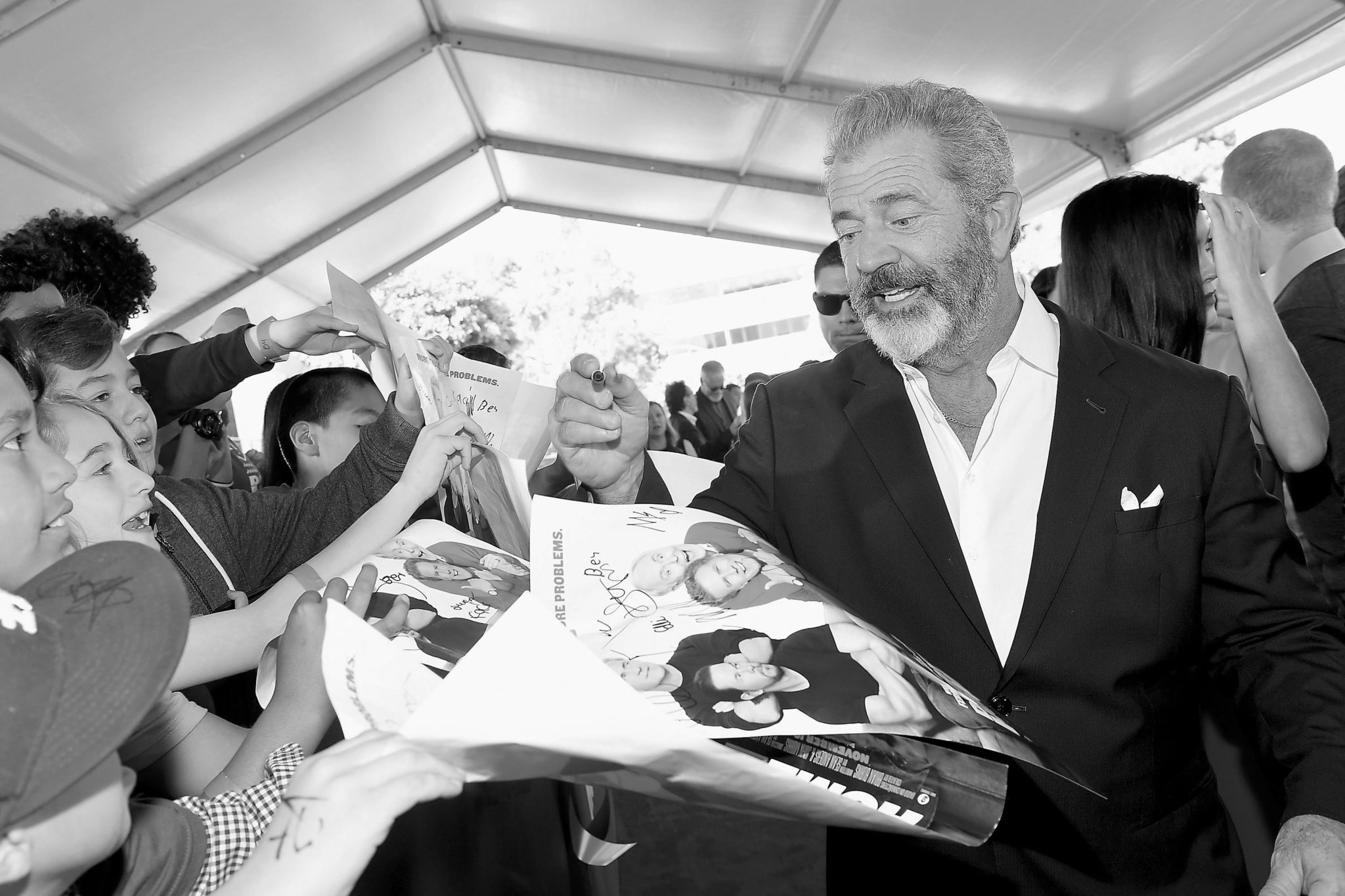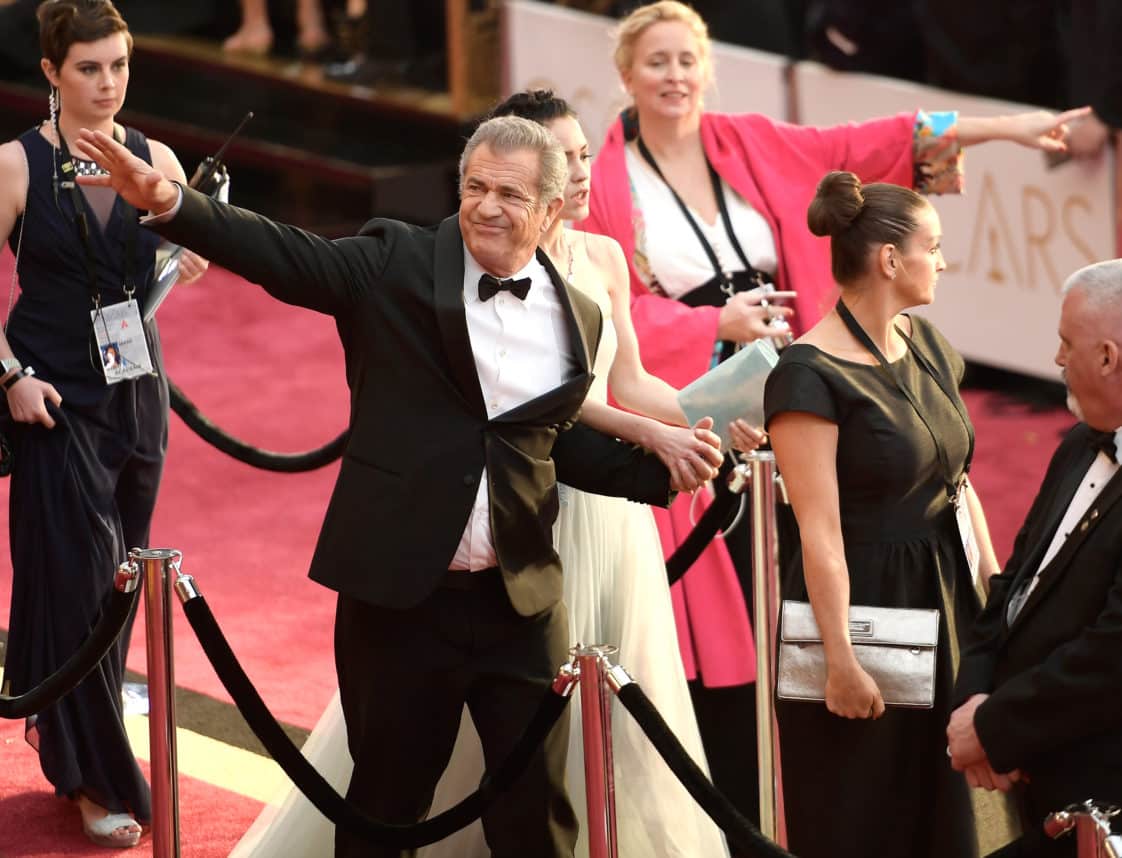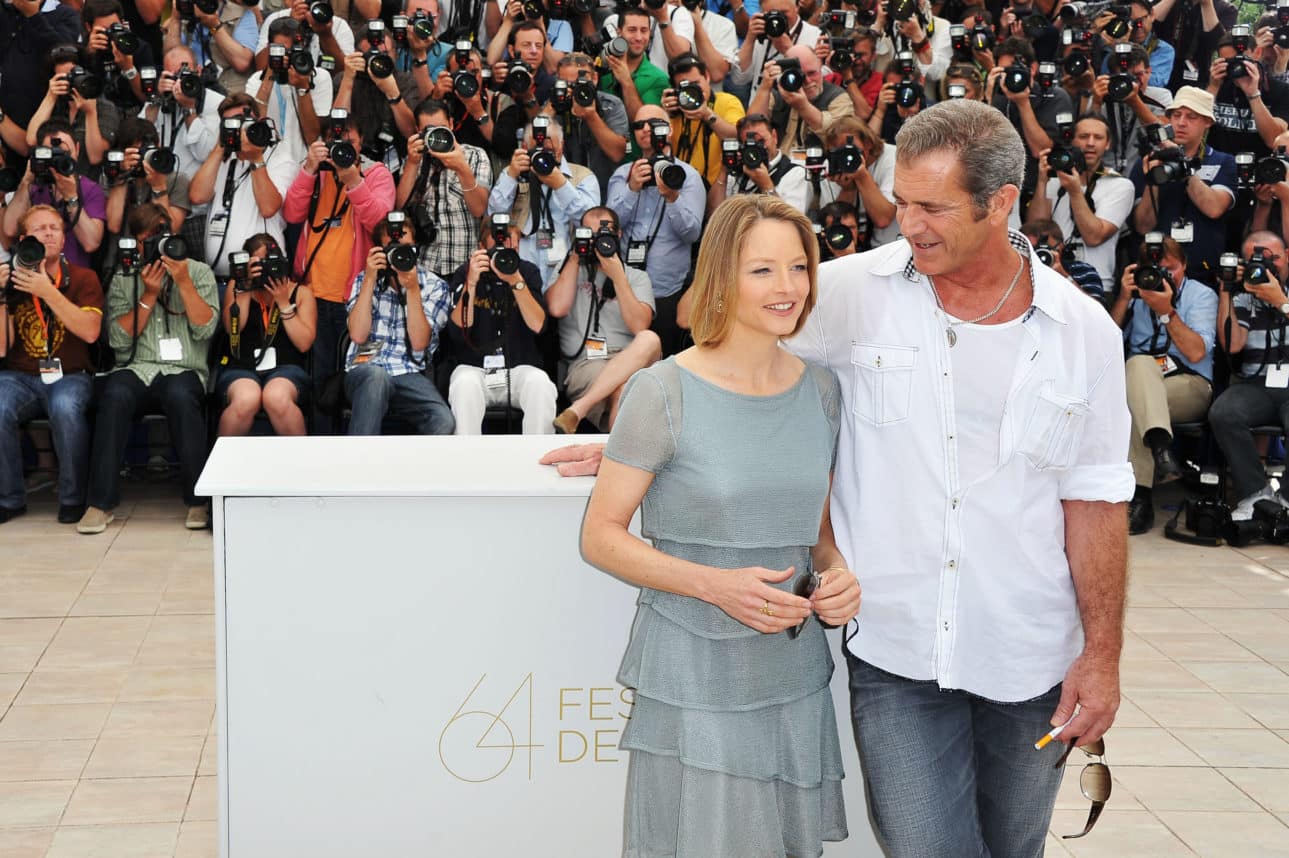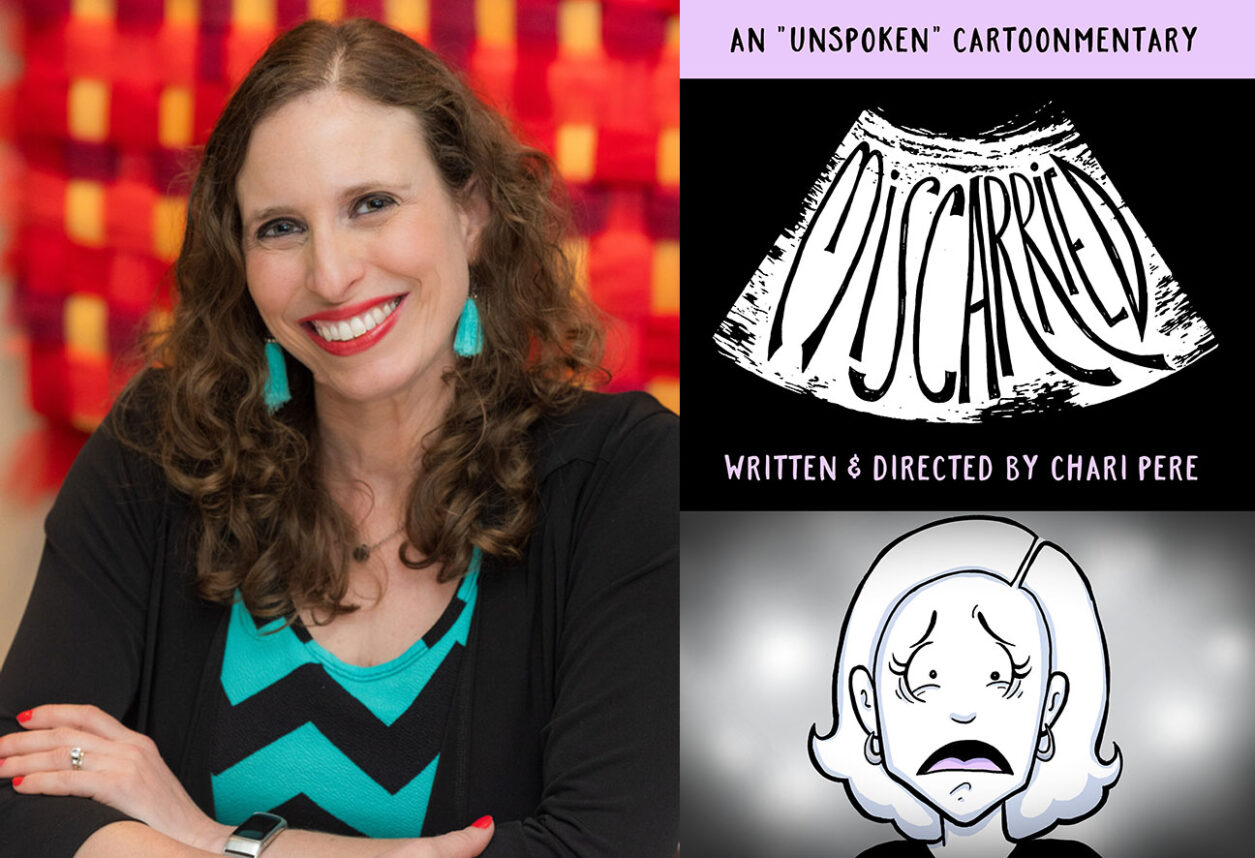 <> at Regency Village Theatre on November 5, 2017 in Westwood, California.
<> at Regency Village Theatre on November 5, 2017 in Westwood, California. Earlier this week, Jewish actress Winona Ryder reasserted decade-old allegations that director/actor Mel Gibson had made anti-Semitic remarks to her at an industry soiree.
Ryder claims that when Judaism came up, Gibson leaned over and asked her, “You’re not an oven dodger, are you?” The reference, both to Ryder’s Jewish heritage and the crematoria at Nazi death camps, clearly was anti-Semitic — a word often associated with the “Hacksaw Ridge” director. Gibson, whose representatives claim the story is “100 percent untrue,” still is feeling the fallout; his role reportedly already has been recast for a highly-anticipated remake of the animated film “Chicken Run,” in which he was the lead voice actor.
Anyone with basic knowledge of Gibson’s history would not be surprised at him making hurtful comments about Jews. “I’m only surprised by Mel Gibson’s ‘oven dodger’ comment because it acknowledges the Holocaust actually happened,” Seth Rogen joked in response to the controversy.
I’m only surprised by Mel Gibson’s “oven dodger” comment because it acknowledges the Holocaust actually happened.
— Seth Rogen (@Sethrogen) June 23, 2020
The “Braveheart” star has a long history of bigoted behavior, and also documented violence against women. The alleged remarks reveal nothing new about Gibson – the incident itself happened in 1995.
However, Ryder’s claims are receiving attention not because of what they expose about Gibson, but about the Americans who let him back in their living rooms.
Winona Ryder’s claims are getting attention not because of what they expose about Gibson, but about the Americans who let him back in their living rooms.
Mel Gibson’s Hollywood comeback never should have happened. His redemption was never earned.
Before mass disavowing people in the face of any minor transgressions became the ballad of pop culture, Mel Gibson was canceled – and for good reason. In 2006, People magazine’s first “Sexiest Man Alive” was pulled over by police for drunk driving. A tape of the tirade he screeched to police was leaked, making clear the anti-Semitic overtones of “The Passion of the Christ” were not an accident. “F***ing Jews … the Jews are responsible for all the wars in the world,” Gibson raged to a police officer, probing, “Are you a Jew?” Around that time, Ryder first made her allegation of the Oscar-winner calling her an “oven dodger.”
“I don’t think I want to see any more Mel Gibson movies,” Barbara Walters proclaimed on “The View,” at the time. The heads of Sony, Universal and William Morris Endeavor publicly disavowed him.
Despite his apology and stint in rehab, Gibson’s tarnished his career further when his girlfriend (and mother of his child) Oksana Grigorieva accused him of domestic violence, hitting her so hard while carrying their infant daughter that he broke her teeth. Tapes of their confrontation, where Gibson corroborates the abuse and replies, “you f***ing deserved it,” leaked. He also tells Grigorieva, “If you get raped by a pack of ni**ers, it’ll be your fault,” and threatens to set fire to their house with her trapped inside.

That was the nail in the coffin for Gibson’s career – for six years. By 2016, Gibson was back in the limelight, nominated for an Academy Award for directing “Hacksaw Ridge.” He was redeemed as family-friendly, starring in “Daddy’s Home 2,” which was a $180 million success. Gibson so seamlessly returned to the public eye that in 2018, Vox claimed he “has set the blueprint for #MeToo comeback.”
But Ryder’s resurfaced accusations of anti-Semitism remind us that Gibson’s comeback was never deserved.
Now, there is nothing wrong with finding redemption, particularly when struggling with addiction. There certainly is something wrong with blackballing someone, in any profession, for a scandal and offering no road to clearing their name. However, unlike other stars who have had their careers declared dead for an offensive tweet, Gibson has engaged in serious acts of violence – for which he did not go to prison. Despite a couple of flat apologies, “the success of Gibson’s comeback relies on persistent vagueness and keeping his face away from the controversies that surround him,” explained culture writer Constance Grady.
Gibson did not seek out redemption; he waited out a distraction. He never has shown a commitment to unlearning violent misogyny or procuring the safety of women. Yes, he issued a 2006 plea to meet with Jewish leaders for a “discussion to discern the appropriate path for healing,” and has been a generous donor to The Survivor Mitzvah Project, which provides financial aid to Holocaust survivors. Although those steps are commendable – even admirable – they are undermined by Gibson’s other antics.

In the press, Gibson has been committed to portraying himself as the “real victim.” “Who anticipates being recorded?” he told Deadline in 2011. “Who could anticipate such a personal betrayal?” He carried that talking point on his 2016 redemption tour, griping about how he felt exposed, rather than addressing the behavior that was leaked. “Imagine the worst moment you have ever had being recorded and broadcast to the world and it wasn’t meant to be public,” he repeated in 2016. The Atlantic dubbed his Oscar campaign as a “non-apology tour,” referencing Gibson’s actions as a guest on “The Late Show.” Stephen Colbert asked, “Hey, Mel-Mels? When you look back on your life, do you think you’ll have any regrets?” “No,” Gibson replied. “Not one.”
Gibson has even referred to criticism of his violent, hateful history as “petty grudges about nothing.” Rather than make amends with those he’s hurt, Gibson called in favors from his Hollywood friends. It was not active, apparent growth that brought Gibson back to glory, but rather Jodi Foster and Robert Downey Jr. vouching for him.
Gibson never hoped for forgiveness – just that the public would eventually forget about his anti-Semitism, racism and domestic violence. All Ryder did was jog our memories.






















 More news and opinions than at a Shabbat dinner, right in your inbox.
More news and opinions than at a Shabbat dinner, right in your inbox.